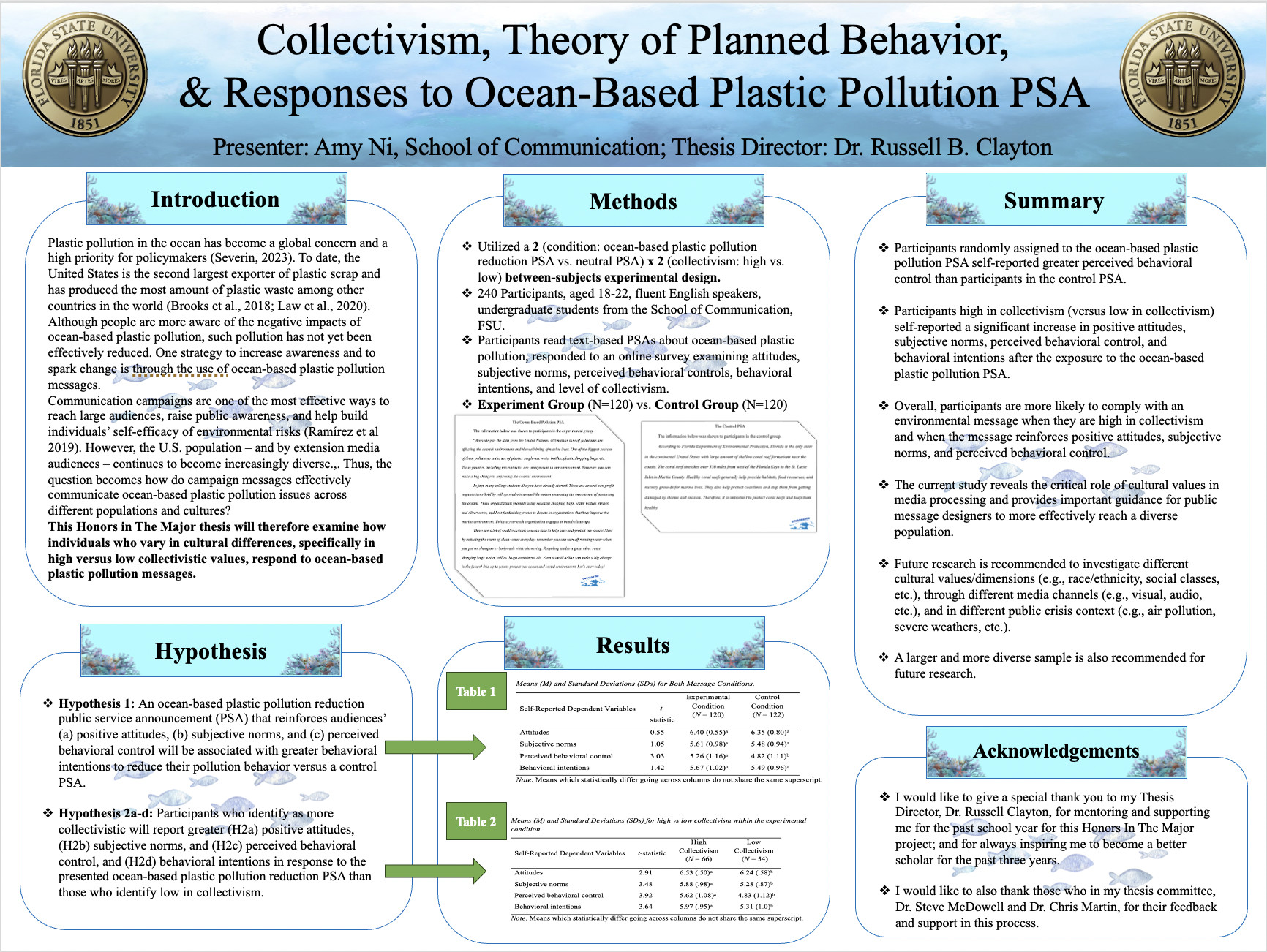Research Symposium
24th annual Undergraduate Research Symposium, April 3, 2024
Amy Ni Poster Session 3: 1:30 pm - 2:30 pm /165
BIO
Amy is currently a fourth-year undergraduate student doing a dual-degree in Media Communication Studies and Psychology. Her research interests include media psychology, specifically individual media processing on emotional and cognitive levels. She is also interested in the intersections between media processing and cultures. She is currently working in the Nee Lab (Neuroscience) under Dr. Derek Nee, responsible for MRI, fMRI, EEG, and TMS data collection. Throughout her college career, she has worked as a Research Assistant in the FSU Cognition & Emotion Lab under Dr. Russell Clayton, and a DIS student in a Child Psychology Lab. The study she will be presenting is her Honors in The Major Thesis.
Besides research, Amy is also a dedicated student leader. She currently serves as the President of Psi Chi FSU Chapter, the Executive Chair of TEDxFSU, the Service Chair of PERIOD. FSU Chapter, and is an active member of the Garnet & Gold Key Leadership Honorary. She is also a third-year Resident Assistant, and has helped hundreds of students thrive in their first year of college.
In her free time, Amy enjoys doing vocal performance at local/on campus events, painting, performing with the FSU Belly Dance Troupe, and cooking.
Collectivism, Theory of Planned Behavior, & Responses to Ocean-Based Plastic Pollution PSAs
Authors: Amy Ni, Russell B. ClaytonStudent Major: Media Communication Studies; Psychology
Mentor: Russell B. Clayton
Mentor's Department: School of Communication Mentor's College: College of Communication & Information Co-Presenters:
Abstract
The purpose of this Honors in The Major project was two-fold: (1) to investigate the impact of an ocean-based plastic pollution PSA (versus control PSA) on attitudes, subjective norms, perceived behavioral control, and behavioral intentions to protect the ocean environment; (2) to examine individual differences in collectivism on message processing of the ocean-based plastic pollution PSA. An experiment was conducted wherein participants were randomly assigned to read an ocean-based plastic pollution PSA (N = 120 undergraduate students) or a control PSA (N = 122 undergraduate students). Self-reported attitudes, subjective norms, perceived behavioral control, behavioral intentions, and collectivism were collected from the participants following message exposure. Data analysis revealed that participants in the ocean-based plastic pollution PSA had greater perceived behavioral control, but there were no significant differences on other outcome variables. In addition, collectivism was positively correlated to self-reported greater attitudes, subjective norms, perceived behavioral control, and behavioral intentions among participants specifically in the ocean-based plastic pollution PSA condition. This study provides important implications for environmental-message designers to take message content and cultural values/identities into consideration. Limitations of this paper are also discussed.
Keywords: Environment, TPB, Collectivism, Experiment
Keywords: Environment, TPB, Collectivism, Experiment


